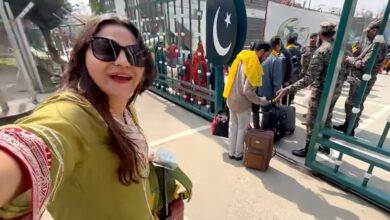Scamster Arrested for Creating Fake HSRP Website
Mumbai Cyber Police Nab 57-Year-Old for Defrauding 40 Vehicle Owners Through Phony HSRP Platform, Resulting in Overcharges and Non-Delivery of License Plates.


MUMBAI: 57-Year-Old Caught for Operating Fake HSRP Website, Defrauding Motorists
The South Cyber Police in Mumbai recently arrested a 57-year-old individual for allegedly operating a fraudulent website that duped motor owners seeking high-security registration plates (HSRPs), now required throughout the country. HSRPs are tamper-resistant number plates that carry enhanced security elements such as holograms and laser-engraved codes, meant to check vehicle-related crime like theft and fraud.
The case made headlines in the state legislature, where a number of MLAs questioned reports of people being overcharged for HSRPs. The police initiated the investigation following a complaint made by Gajanan Thombre, an assistant transport commissioner, which led to the June 7 registration of a case against the accused.
The arrested man, whose name is Vinod Bawale and hails from Bengaluru, was found to be charging extra money from vehicle owners who visited his bogus site.As reported by police, Bawale charged ₹400 more for two-wheelers, ₹700 more for four-wheelers, and ₹1,500 extra for trucks. At times, he even took money online but didn’t provide the HSRPs. If the applicants continued to inquire, Bawale would enter their mobile numbers on the official Regional Transport Office (RTO) website as a fraudulent measure. Officials have confirmed that approximately 40 people had been victims of his fraud.
The need for HSRP installation was underscored after a Supreme Court ruling made it obligatory for all motor vehicle owners in India to have HSRPs. In doing so, the Maharashtra government assigned three government-contracted agencies—Rosmerta Safety Systems Limited, Real Mazon India Ltd, and FTA HSRP Solutions Pvt Ltd—to be the official contractors. Police then discovered that two of these agencies reported that several fake websites imitating their operations were being used to cheat car owners.
“The bogus links appeared on March 4, and the transport department approached us since many vehicle owners had made payments through these websites, incurring financial losses,” an officer said. The bogus websites were designed to look like official contractor interfaces, making many unable to differentiate between real and fake services.
As investigations advance, a case has been filed against unidentified cyber swindlers who managed these fraudulent websites, exploiting the looming deadline for HSRP installation. Offences are being charged under Section 318(3) of the Bharatiya Nyaya Sanhita, 2023, pertaining to cheating with the aim of acquiring property or money, in addition to Sections 66C and 66D of the Information Technology Act, which pertain to identity theft and cheating by impersonation through computer resources.
Authorities are urging vehicle owners to be vigilant and only use official channels for HSRP applications to avoid falling prey to similar scams in the future.






